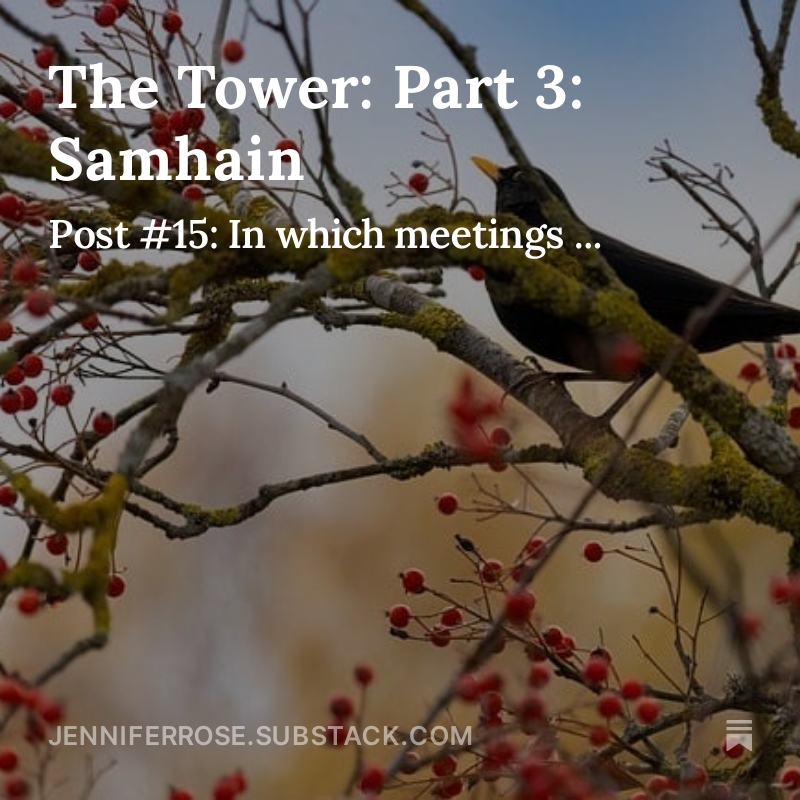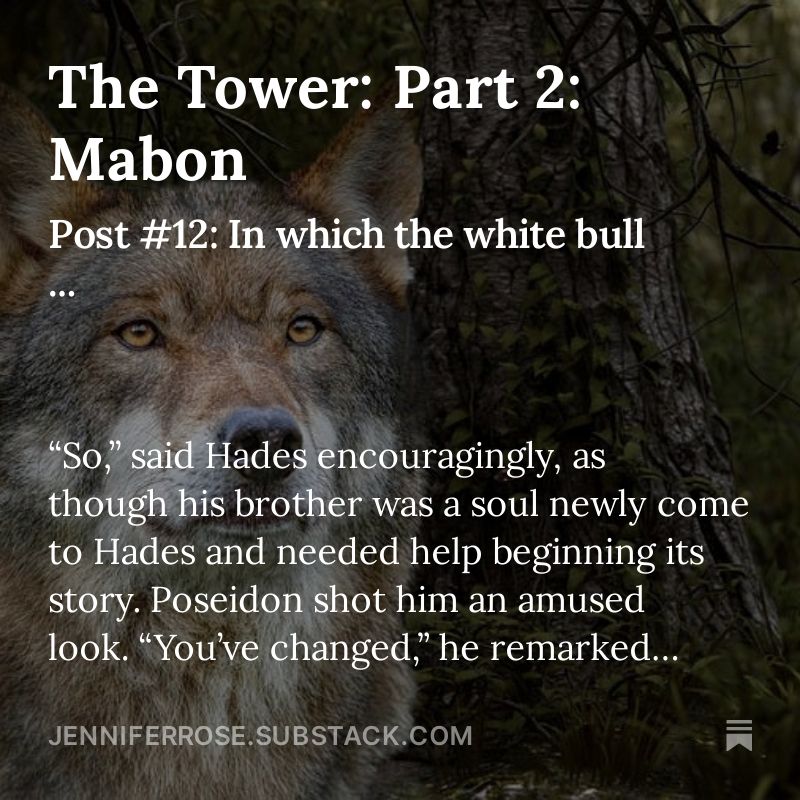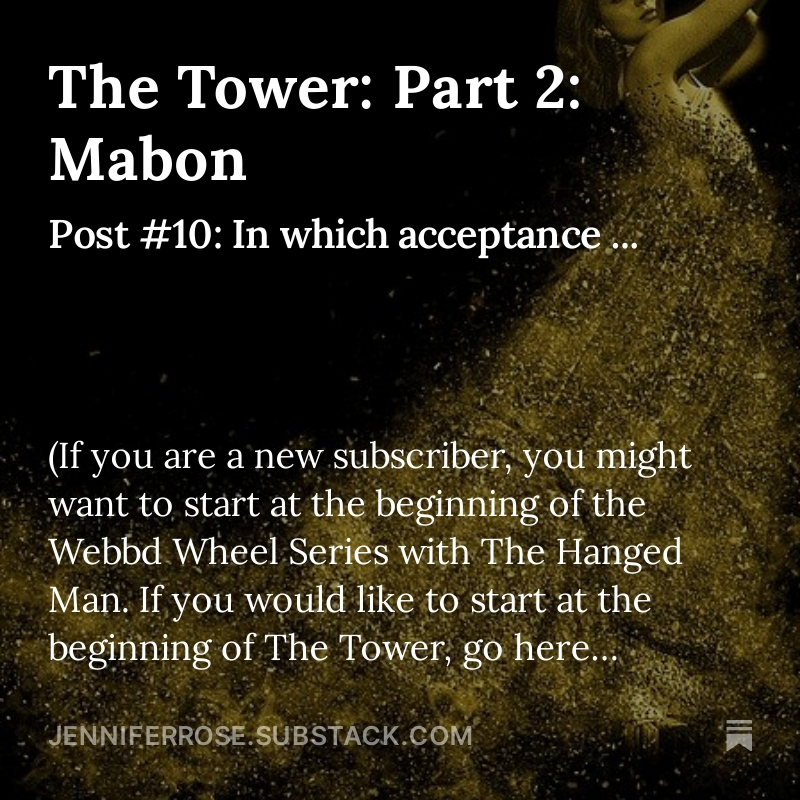by Jenny Rose | Apr 27, 2024 | A Flourishing Woman, Mind
A few weeks ago I explored self-trust. Until I wrote that piece, I had not realized how deeply I distrusted myself. (As a writer, I find nothing clarifies my thinking better than written inquiry. The process uncovers so many unconscious and hidden things.)
In that post I speculated about choosing to trust myself, as trust is a belief, and beliefs can and do change. I thought it would be interesting to consciously trust myself for a few days and see what happened.
What has happened is a profound change in my interior life and my mental health. What happened is the realization that learning to self-love, while a healing and valuable practice, was not, after all, what I most needed.
This still seems strange to me. We are certainly taught love is the greatest feeling, the closest to the Divine we can come, the best we can be as human beings. We define love endlessly, discuss it, long for it, search for it, tell ourselves it will fix everything if only we can find someone to love, if only someone will love us completely, unconditionally, forever and ever (or at least until death do us part), amen.
But my experience has taught me love is changeable and elusive. All kinds of abuse masquerades as love. We don’t all mean the same thing when we express love.

By Marianna Smiley on Unsplash
Perhaps most heartbreaking of all, we don’t always value the love that comes our way, and we may learn to distrust it. Every master manipulator in the world recognizes the power of our need for love. Once that need is used against us, we are on our guard against love.
Love hurts. Love can endure, but a withered, starving love living on memories and perhaps based on delusions or the simple call of blood is a desolate ghost haunting our hearts. Love can scar us so deeply we’re never the same.
The daily practice of loving oneself is less complicated than loving another. At the very least, I know what I mean when I say it to myself, and my self understands my demonstration of it. Nothing is lost in translation. I can trust my own love.
And there’s that word – ‘trust’. Trust and love: does one require the other, or are they separate? One is a feeling (love), and one is a belief (trust). Both can be manipulated. In terms of our love and trust of ourselves, both are highly subject to interruption or even amputation by those who influence us, especially as children. If we are repeatedly given to understand we are not lovable or not to be trusted, we internalize those beliefs before we even have language. We don’t learn to love and trust ourselves.
Internalized beliefs are enormously powerful right up until we examine them closely, at which point they can vanish like a wisp of smoke. Once we’ve seen them as false, we become conscious of their pervasive influence and our internal structure changes in astounding ways.
This is what has happened to me.
When I set out to live a few days consciously trusting myself, I realized within an hour my obsessive and unending loop of review and preview. Just like a fish in water, I have no memory of ever living any other way, so I never noticed it before. Well, that’s not true. I noticed it, I just called it anxiety. As I’ve always been anxious and expected I always would be, I didn’t think further about it.
In an example from my childhood, when I was very young, kindergarten age, my mother had a lot of pain and was quite unhappy. I had a younger brother and we had cats and dogs. In an effort to take care of my mother, I learned how to do things like make beds, sort laundry, set up the coffee maker, make orange juice in the blender (frozen concentrate), take care of the animals, tie my own shoes and teach my brother to tie his, etc.
I vividly remember lying in my bed, my brother across the room in his bed, reviewing everything I’d done that day. I had trouble with hospital corners on the beds because I wasn’t strong enough to tuck the sheets in properly under the mattress. Mom had to bend over and do them again, so I failed to help and caused her pain. I didn’t turn a sock right side out when I sorted the laundry. I could tie my own shoes, but I was baffled trying to teach my brother to tie his while facing him. And so forth and so on.
Review: I hadn’t done it right. I hadn’t helped. I hadn’t been perfect. I hadn’t made Mom happy. I had to do better. Preview: Next time I would look at every piece of laundry, be sure nothing was inside out. Next time I would remember how to sort it properly so Mom wouldn’t have to bend down and do it herself. Next time I would figure out a way to get the hospital corners right, but I wouldn’t have to face that again for a week or so. Maybe I’d be stronger or bigger? If I got behind my brother and tied his shoes from that angle, could I do it? I had to do it! It hurt Mom to bend down.
This habit, this ongoing internal review and preview, has never stopped. Whatever I’ve just done, I review it. Whatever I’m about to do, I preview it. Racing thoughts. Circular thinking. Problems with sleep and chronic tension. Adrenal overload and exhaustion. The need to distract, to make it stop. The inability to have a quiet mind. Most of us are familiar with the symptoms of anxiety.
I believe my anxiety has been rooted in my self-distrust. When I decided to behave as though I do trust myself, I became conscious of my lifelong review and preview habit, as much a part of me as my blue eyes. At the same time, I discovered the solution. The minute I catch myself either reviewing or previewing, and it’s many, many times a day, I say, “I trust you,” to myself.
And I stop. I don’t need to review. I don’t need to preview. I did the best I could, because I always do that. I’ll do the best I can, because I always do that.
“I trust you.”
I’ve also realized, after long experience of sorting through my own psyche, this self-distrust is not mine. It doesn’t smell like me. It’s not home grown. It came from someone outside me, like so many of the unmanaged, unacknowledged emotions and beliefs I’ve carried, recognized as not mine, and let go.

By Danijel Durkovic on Unsplash
I discovered, as I wrote that post on trust, I do trust myself. I’ve always had cognitive dissonance around trust. Those around me didn’t trust me, yet I trusted myself. I trust my intuition. I trust my empathy and sensitivity, I trust my intention to do the right thing, I trust my flexibility and my ability to learn. I trust my ability to love. I trust my ability to think critically and recognize the truth, no matter how unwelcome. When I assure myself of my trust, it’s not a lie. It’s a truth buried for years under trauma.
I suspect many of us review and preview, consciously or not. It’s wholly ineffective in terms of healthy functioning. It makes us less flexible and resilient. It tires us out, creates long-term chronic stress, and is a constant no-confidence vote we give ourselves. It doesn’t make us more perfect; in fact, it does the opposite because it encourages us to be brittle and fearful. It doesn’t stop us from making mistakes. It turns us away from presence and authentic expression and towards behaving like automatons with a rigid script.
It gives us anxiety.
Most of all, reviewing and previewing doesn’t keep us safe. It doesn’t help us feel loved.
The compulsive habit of reviewing and previewing took up an extraordinary amount of space in my mind and required enormous quantities of energy and attention. Without it, I feel an internal spaciousness I’ve never had before. I read more. I write more. I can rest and relax. I’m far less driven, far more comfortable in my own skin. I’m more present and mindful in the moment, and with my feelings and my body.
I’m far less anxious.
Learning to love myself has been a gift. Reclaiming trust in myself has changed my life.
Questions:
- Do you love yourself? If not, why?
- Do you trust yourself? If not, why?
- If you could only have one, would you prefer others to trust you or love you?
- What do you think is more important socially: love or trust? Why?
Leave a comment below!
To read my fiction, serially published free every week, go here: 
by Jenny Rose | Mar 30, 2024 | A Flourishing Woman, Self-Love
When I wrote about internal locked rooms earlier in the month, I had no idea how much there would be to unpack. In subsequent discussions about locked rooms and unconditional love (for a connect-the-dots map go here) a friend tells me she believes trusting herself is the biggest barrier for her in unconditionally loving herself. Me being me, I asked her how we define trust. In asking her I asked myself.

Photo by Jonathan Simcoe on Unsplash
Here we go again.
Trust is defined by Online Oxford Dictionary as “firm belief in the reliability, truth, ability, or strength of someone or something.”
Trust is a tricky subject for me and I’ve so far avoided taking it head on, but this feels like the right time. Part of my hesitation to talk about it is my own identity as a person who doesn’t trust easily.
I feel that piece of identity as a shameful aspect of my character. As I write this, I have a vivid childhood memory of being in the back of a dim car in a blinding snowstorm feeling scared. An adult in the car was also fearful, as were the family dogs. The driver asked me, “What’s the matter, don’t you trust me?”
The answer clamored inside the car, “NO!” For a moment it seemed to me we’d all shouted it, though nobody said a word and I huddled, frozen with fear and not daring to speak, in my corner.
It’s bad not to trust; disloyal, unloving, unnatural. But I learned very young trusting those around me was dangerous. All my life I’ve been torn between my shame about not trusting and a determination to survive and learn to self-defend … which sometimes (often?) means not trusting.
I don’t see trust as a black-and-white belief. I might trust someone completely with money and business affairs, but not at all as a confidant. I might trust someone as a parent but not as a dog walker. I might trust someone’s essential goodness but not their reliability in following through on plans.
This question of trusting ourselves, though, is slightly different. What does it mean, exactly, to not trust ourselves? What do I mean when I say it to myself?
Trust is defined as a belief, and beliefs can and do change. Belief is a choice. My belief that I’m untrustworthy is not something I was born with, but something I internalized from my family. I’m untrustworthy because I’m dramatic, I struggle with math story problems, I have needs and feelings, I’m intuitive, I’m sensitive, I have boundaries, I challenge authority and rules, and I tell the truth, among many other reasons.
Internalized voices are a bitch, because we don’t realize or remember they came from someone outside us.
And people outside us lie. People outside us can never fully see what’s inside us. People have agendas, their own wounds and trauma, and navigate around their own internalized bullshit.

Photo by Cristian Newman on Unsplash
People outside us are not necessarily reliable sources about our worth and value as a human being.
If trust is a “firm belief in the reliability, truth, ability, or strength of someone or something,” we have specifics we can explore.
Reliability: I know myself to be reliable. I have many flaws, but my integrity is strong and I keep my word to myself.
Truth: A thorny aspect of trust. I wrote two paragraphs here about the ways in which others perceive my truthfulness. On edit, I realized none of that has to do with my truthfulness with myself, which will always be invisible to the outside world. Do I trust my truthfulness with myself? Yes. Absolutely.
Ability: This is my weakest area of self-trust. In some ways. At some times. I wrestle every day with imposter syndrome. On the other hand, I absolutely trust my ability to write, to teach, to swim, to dance, and to do many other things. Oddly, though I trust my ability in most cases, I don’t want others to trust my ability because I have a huge fear of disappointing people. This, too, is an old wound, first opened when I received constant messaging about how disappointing and inadequate I was as a child. Because of that, I don’t want people to rely on me for fear I’ll let them down, not from my perspective, but from theirs.
I told you trust was tricky for me.
Strength: Which brings me to strength. This, for me, is a no-brainer. I have absolute belief in my own strength. God knows I wouldn’t be sitting here at the keyboard typing if I hadn’t been strong all my life.
Given this mostly positive review of the components of this definition of trust, what’s the problem? Why have I so consistently mistrusted myself during my lifetime?
I can easily come up with two reasons. There may be more lurking in the background, but these two are in front: One is trust in my physical body, and the other is perfectionism.
Perfectionism is one of the first things I wrote about on this blog. It’s another piece from my childhood I’ve struggled with it all my life, and I’m certainly not the only one. I’m conscious of it now, which is helpful, but it affects every day of my life and if I’m not mindful it rules me. Publishing this blog was one of my first real efforts at resistance. It took more than a year of weekly publishing to stop feeling panic as I pushed the “publish” button after a reasonable amount of writing and editing.
Even as perfectionism drives me, I’m aware enough to know I can’t define it beyond pleasing people. Which is impossible, and I know that. Yet the internal pressure to be perfect seems to be inescapable.
I’ve also written extensively about expectations. As a child, I was expected to be perfect according to conflicting expectations from three adults on whom I was dependent. Needless to say I failed to please any of them, which meant I lived in a constant state of shame and fear of abandonment. A perfect setup for internalized self-loathing. The road from self-loathing to considering unconditional self-love has been an amazing journey.
I was aware, as I explored ability, reliability, truth, and strength above, of a little voice in my head saying, “Yes, but—,” a precursor to the time I was late, or forgot an appointment, or the occasions I did deliberately lie, or the times I felt weak, or when my ability did not live up to my own unconscious standards of perfectionism.
As I became aware of this, I realized I will never trust myself if I aspire to be perfect in these four categories. I have never been perfect, I am not perfect, I never will be perfect, and I’m not much interested at this point in my life in attaining perfection in any way.
So fuck off, perfectionism. I’m not your bitch anymore. AND you will not stop me from loving myself, unconditionally or otherwise. Unconditional love is not built on some ridiculous set of expectations.

Photo by Emma Backer on Unsplash
Which brings me to an interesting insight on my relationship with my body. Let’s not do the body-as-a-political-signal thing, OK? I’m sick of it. We all live in a body. We have baggage about how our bodies look and function. We’re pressured, every day, to try to buy a “better” body, especially children. In today’s world, many of us feel we “should” be different, no matter what we look like. Currently, we’re obsessed with appearance and virtue signaling rather than health and function.
I don’t hate my body. However, due to autoimmune issues and years of chronic pain, I haven’t trusted it. Until the last ten years or so, since I’ve gone carnivore, my physical state was extremely limiting; I was unable to engage fully in activities I loved, get regular exercise, or even reliably manage the activities of daily living without severe pain.
Now I have my inflammation under control, my chronic pain is gone, and I’m able to joyfully live the kind of active lifestyle I’ve always wanted: gardening, walking, swimming, water aerobics, free weights, stretching, a little yoga, a little Pilates, a little time in the gym. I’m healthier and more active than I’ve ever been, but I am aging, and as I age, my body is changing. (Big surprise, I know!) I noticed, in my post about unconditional self-love, some of the things I wrote about unconditionally loving were physical things. In this culture, nobody tells us to love our varicose veins, or our age-spotted hands, or our lined neck. Instead, we’re encouraged to buy something and “fix” all those problems, or at least hide them.
That’s not unconditional love. (I also deny it’s “body positivity,” but I don’t want to dive into that rabbit hole!)
I know if I push myself too hard my body will hurt. I know if I allow my anxiety to spin out of control I won’t sleep. I know if I eat a whole pizza I will a) have inflammation and pain from the carbs and b) have severe constipation (cheese). I know if I garden for too many hours at a time I’ll be too stiff the next morning to get dressed without sitting down. I know if I spend too many hours in the pool I’ll develop eczema on my elbows and hips.

Photo by Cristian Newman on Unsplash
I ask myself, does all this mean I don’t trust my body? Because it actually sounds like I do trust it to react to my choices in various predictable ways. Is what I’m really saying I don’t trust my body to be a 20-year-old perfect body?
Well …. Yeah. I guess that is what I’m saying. Pretty silly.
My friend doesn’t feel she can unconditionally love herself without trusting herself. She’ll navigate her own path through all this. My own conclusion is I can trust myself. Perhaps I should consciously start doing so. (What an idea!) For me, lack of self-trust is not an obstacle to unconditional love, but it certainly makes a nice contribution to it.
Questions:
- Do you see trust as essential to unconditional love?
- Do you agree with this definition of trust? If not, how would you define it? Can you find a better definition?
- What aspect of trust in this definition do you struggle with the most?
Leave a comment below!
To read my fiction, serially published free every week, go here: 
by Jenny Rose | Mar 16, 2024 | A Flourishing Woman, Mind
I’m still looking at my locked room, which I wrote about in my last post. I’ve had some interesting conversations about that post.
My emotional intelligence coach (who has now retired) used a phrase years ago when I was working formally with him: “I want everything you are and nothing you are not.”
It touched a deep, lifelong longing in me to be loved, accepted, seen in my entirety, though I know I would never allow myself to be seen in my entirety.
Through the years since, I’ve carried that phrase with me as I love and interact with those around me. Depending on my mood, it’s a ridiculous, impossible-to-achieve sentiment for any human being, cruel in its false hope, akin to rom coms. Or it’s something to aspire to, a reminder to be softer with my rigidities and expectations, quicker to forgive.
As I wrote a couple of weeks ago about locked internal rooms, it suddenly struck me in all the years I’ve been thinking about that phrase I never once said it to myself. I’ve been focused on my grief and shame about never being good enough to find that kind of love from another human being, or on my suspicion that none of us can honestly say that to one another. Not day after day in the long term.

Photo by Ryan Moreno on Unsplash
Over the last decade or so I’ve slowly, agonizingly, stopped hoping a prince on a white horse would show up who would love everything I am, or even love part of what I am unconditionally. (But, honestly, I wanted him to love everything!) I’ve turned more and more towards meeting my own needs for intimacy and connection, realizing the pain of disconnect is from within myself, not external. I want unconditional love. It’s not a feeling I have any power to make others feel.
Unconditional love towards myself, however, is a minute-by-minute challenge in which I have all the power.
Now, that’s a thought.
Extending unconditional love to myself is hard. I would a thousand times rather love someone else and dream of Mr. Right, except I know how that ends … and frankly, I’m bored with it. In fact, it occurred to me a couple of days ago I’m really not interested in Mr. Right anymore. Or Mr. Wrong. Or Mr. Anybody, romantically speaking. I’ve been smiling about that realization ever since. It’s oddly freeing. I watch women in my age cohort with their husbands/significant others where I work in a pool rehab center and think, “Better you than me, sister!” And smile some more. An enigmatic lifeguard smile (I hope).
The whole idea of romance doesn’t fascinate me anymore unless it’s strictly fantasy. Repairing and healing my relationship with myself is far more interesting. This refocus may be the greatest gift of menopause. I know some women grieve over it, but for me it’s freedom from what was frequently an overwhelming, stressful, and complicated biological imperative. Whew.
Is it possible for us to love ourselves unconditionally? Is it possible for me to do so?
What a question! A question leading straight back to my locked room.

Photo by John Salvino on Unsplash
I can’t love everything I am and nothing I’m not if I don’t know everything I am. If I don’t want to know. If I refuse to find out.
(Item: in my last Tarot spread for Imbolc I drew the Sea: Plumbing the Depths card.)
Now, like all of us, I have acceptable (to me) qualities and traits and unacceptable ones. I’m a mishmash of genetic inheritance and learned behavior. I’m a hot mess and I’m reasonably competent and effective. Sometimes all at the same time!
And I’m supposed to unconditionally love that?
Well, yes. That’s what unconditional love is, right?
I have a varicose vein popping up. I’m deeply insulted. WTF? I’m supposed to love that? I’m supposed to love the genetic inheritance/sun exposure/years of chronic pain that caused me to be sedentary/and other factors in the tired, bulging, blue-violet vein in my lower leg? What about the foot I’m pretty sure I’m developing a touch of arthritis in? What about my aging neck? What about my age-spotted hands (more sun exposure)?
And that’s just the beginning. I’m supposed to love the roots of my perfectionism, my speeding, my anxiety? Well, not the roots, but the child who was traumatized and developed those mechanisms to survive? (And did survive, let’s not forget.)
Romantically speaking, it’s easy to love white horses, roses, diamonds, champagne, sexy exotic vacations (none of which I find especially romantic, but you know what I mean!). I can love my competence, doggedness, creativity, integrity, ability to support others, and many other fine qualities (if I do say so myself). But the aches and pains, sleepless nights, endless loops of anxiety, tendency toward depression, rigidity, fawning, inept healthy boundaries and self-advocating – these are not lovable. These are a pain in the ass.
I am a frequent pain in my own ass.
Can anyone relate?
As for mistakes (I turned out the ladies’ locker room light while someone was still in there last week when we closed the pool!), shameful thoughts and feelings, dire deeds I wish I could forget, habitual catastrophizing, hurt I’ve inflicted on others, parenting mistakes, and a host of other miserable dead bodies in my locked room, unconditional love means I love those, too. It means I love my fallible, aging, flawed, exceedingly human self. All of it. All of me.

Photo by Cristian Newman on Unsplash
It makes me want to permanently lose the keys to my locked room.
Then there’s the “nothing I am not” part of the equation. Boundaries again. I’m so tired of working on boundaries. On the other hand, having no boundaries makes life not worth living, so I persevere. “Nothing I am not” includes what I was taught about myself and my role in my family as a child; false and limiting beliefs; my endlessly carping, nitpicking, internal critic; fear; despair; depression; anxiety; etc., etc. We carry so many burdens, and many of them never belonged to us in the first place. We took them upon ourselves, or someone forced them upon us, or we accepted them in order to ‘help’ someone else. Some are simply old coping mechanisms allowing us to survive our hard times but now outdated and useless.
At the end of all this, I wonder if our locked rooms are just another challenge in love. How much of ourselves do we shut away because we can’t love all of what we are, and we’re certain others couldn’t love us if they knew what was behind the door?
In the case of storing experience too horrific to manage, such as deep trauma, grief, or guilt, don’t those feelings need unconditional love most of all? The locked room itself, however we envision it, however we envision its door, is surely deserving of love too. It allows us to continue to function in life in spite of terrible experiences. It gives us respite, a way to pause, a way to give ourselves time to gain distance, wisdom, grow into new skills and learn how to help ourselves if and when we do crack the door open. It allows us to stay safe and sane.
For me, a choice to practice loving everything I am and nothing I’m not means I’ll be opening the door to my locked room and poking around in there. Now I’m curious. Could I at least consider loving what I find?
I’m considering it. Carefully.
Questions:
- What do you love about yourself?
- What do you have to do, be, or stop doing to earn your own love?
- Do you think more about finding someone to love you or practicing self-love?
- What if finding “true love” is impossible unless we love ourselves fully first?
Leave a comment below!
To read my fiction, serially published free every week, go here: 
by Jenny Rose | Jul 23, 2022 | Aging, Connection & Community, Emotional Intelligence
As I serial publish my Webbd Wheel series on Substack, I’m discovering some kindred spirits on the platform. Keri Mangis writes a newsletter called The Power Source, and she recently wrote a piece about being an outsider that caught my eye.

Photo by Joshua Rawson-Harris on Unsplash
I’ve written about the longing to belong previously. The desire to feel firmly anchored in family and community is an ache I’ve felt most of my life. Though I’ve belonged a few precious times in my life and I know what it feels like, I know more about what it doesn’t feel like.
Mangis suggests being an outsider is powerful because being an insider is so much work. We trim and prune and espalier ourselves to stay safe in our feeling of belonging. Humans are social animals. We’re neurobiologically wired to fear being outcast and alone.
Childhood is about learning roles, rules, familial and cultural norms, and, for most of us, under which specific conditions we can be loved and accepted and achieve belonging. Unconditional love is not our best thing.
By the time we’re young adults, we know what’s expected of us if we want to belong. The parts of us that don’t fit in are amputated or hidden, and we often live a double life, one secret and one playing to our audience, or we make ourselves into masks and shells, acceptable to our peers, families, and communities, but lacking authenticity or vitality.
Either choice is a lot of work. Making yourself small is exhausting. Ask any woman.
What we really want is for our real selves to belong, our honest, authentic selves, but few of us are lucky enough to find that easily, and the fear of being alone is huge.
We have a tendency to think of maturity as taking place in the first 20 years of life. By then we’re in our adult bodies and generally able to function on our own. We define ourselves as grownups, adults. We take on responsibilities, pursue education and interests, figure out the economics of independence. Some people form partner bonds and raise children. We’re busy in the world and much of that busyness has to do with belonging, taking care of social obligations, participating in production and consumption, and bumping up against limitations, rules, and taboos. We use our manners, follow traffic rules (sometimes), stand in lines, allow ourselves to be directed by signs, and generally follow the same standards of civility we learned in school.
We also subscribe to ideologies and resist change in the form of new information or critical thinking. We can’t endanger our places of belonging. Our identity depends on them.

Photo by Cristina Gottardi on Unsplash
In exchange, we are paid for our work, have friends, family, and community, wear our labels comfortably, and stay safe in the middle of the herd.
Then suddenly we’re old, negligible, invisible, and burdensome.
Then we die.
But what if the first 20 years are just the beginning? What if, as Mangis suggests, we embark on a new level of maturity in late middle age? What if that level requires we outgrow the need to belong and leave the longing for it behind?
I know from my study of power dynamics fear-driven choices indicate power loss. The fear of being outcast and alone is terrible, and so is the fact of it.
However, it is survivable, and it’s also a much, much easier way to live. The degree to which we’ve spent our first 50 years or so living underground or in the shadows is the degree to which our lives simplify if we decide belonging isn’t so important after all.
Suddenly, we can be as big, as expansive, as individual, as happy, as creative, as expressive, and as strong as we choose. We’ve spent 50 years learning about ourselves and the world. We’re no longer overwhelmed with the physiological needs of reproduction. If we give up our fears and struggles around belonging, what could we do with that energy? Belonging is expensive, and so is longing.
Perhaps mid-life crises are really just another growth spurt, a milestone to be celebrated and welcomed.
Instead of framing these years as the beginning of the end, perhaps we could look at them as the beginning of our most authentic years, the years in which we’re less concerned about how acceptable others find us, stop apologizing for who we are, and focus on reclaiming ourselves and belonging in our own skins.
At the end of the day, we belong only to ourselves. We’re not required to give up our power for transformation in order to belong to anyone else.
All we have to do is let go of our longing for belonging.

Photo by Mike Wilson on Unsplash
by Jenny Rose | Mar 5, 2022 | Connection & Community, Emotional Intelligence
Courtney Carver from Be More With Less dropped this little spring blossom in my Inbox recently. I’m not on Instagram but she passed this on from @sierranwells from @theshineapp.
Paraphrasing, giving our all leaves us empty. It’s unregulated and indicates questionable boundaries. A better choice is to give our best.
Don’t give your all. Give your best.
What an amazing distinction! When I say that to myself, I feel as though a mountain has been lifted from my shoulders.

Photo by Toa Heftiba on Unsplash
I don’t have to give everything and everyone my all. I can choose instead to give certain people, situations, and efforts my best. My best financial donation. My best support. My best effort. My best investment. My best love.
My all is reserved for me and my writing.
The filter between my all and my best immediately clarifies life and choices. It frees me to recognize when I’ve done enough. I’ve given my best. I can stop now. I don’t have to give and give and give until I have nothing left, not even enough to crawl away. I have the power. I make the choices. I decide where the boundaries are. I make an offering of my best, and if it’s not wanted or useful, I move on.
After all, if my best hasn’t been good enough, likely my all won’t be, either. I know that intellectually, but I’ve lived my whole life with the firm conviction that my best is inadequate and withholding. What’s required of me is to give my all, every last penny, every last bit of my time, energy, patience, and love. Everything. No boundaries. No reserves. No personal needs. Boundaries, reserves, and needs are selfish.
Wait, says a little voice inside me. Doesn’t unconditional love mean giving it all continuously, no matter what?
Does it? Is that what unconditional love means?
Unconditional love means love without strings attached.
I don’t know if human love is limitless. I don’t know if mine is. I’ve loved several people with everything in me before, but today I don’t feel as though any of those loved ones found my love useful or even noticed it for what it was. Perhaps it was lost in translation.
Perhaps they never wanted it or needed it in the first place.
I still love some of those people, because they are woven into my flesh and bone, but we are not actively connected and for the most part my love is mute and suffering. I have not found an acceptable way to give it, which is to say I have not found a way to feel it’s recognized, valuable, received or even welcome. It’s unconditional, but it’s unwanted.
Yet I do know one person who longs for my best and my all – all my unconditional love, all my compassion and empathy, all my strength and wisdom, all my creativity and courage.

Photo by freestocks.org on Unsplash
Me.
As I approach my 60s, I spend less and less time thinking about how to give my all and waiting for scraps and crumbs to come back to me. Now I’m focused on how to connect with and unconditionally love myself. Because I deserve it. And it’s my turn. And I want me. I need me.
The people (and cats) in my life get my best. Sometimes that seems regrettably inadequate, but I’m intentional about giving my best to those I interact with, work with, and live with. I give my best to what I do in life, from cleaning the bathroom to teaching a child to swim. My best love, care, and effort are no mean contributions to my loved ones and my community.
But I don’t owe my all to anyone. Not at this point in my life. I’ve never yet given my all without subsequent emotional bankruptcy it took me years to recover from. I’ve never yet felt my all was reciprocated. Perhaps that’s as it should be.
I thought I had to give my all. I thought that’s what love was. I thought one proves love, commitment, loyalty, what have you, with an investment of one’s all. I thought that investment was guaranteed to provide rich returns.
So far, I’ve failed to reap rewards from that strategy. I’m rethinking my investment plan. Might it be that giving my all to me increases the quality of my best to others? Could it be that giving my best to others will prove a better investment than giving my all? Is this a case of working smarter, not harder?
Maybe our all is only useful when we give it to ourselves. Maybe it doesn’t work elsewhere because it’s not supposed to. Maybe our best is better for the people around us.
In any case, I feel lighter, freer, and healthier, both in myself and in my relationships, when I endeavor to do my best within healthy boundaries and reserve my all for myself and my writing.

















